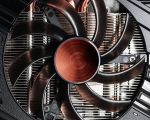How to Repair a Slow Computer: Practical Tips and Solutions to Speed Up Your PC
- 1. Identify the Causes of Your Slow Computer
- 2. Optimize Your Computer’s Performance
- 3. Upgrade Hardware for Faster Computing
- 4. Maintain Your Computer’s Performance Long-Term
1. Identify the Causes of Your Slow Computer
When your computer starts slowing down, the first step is to identify the root cause. There are several reasons why your PC may be performing poorly, including software issues, hardware problems, or outdated settings. Common signs of a slow computer include long startup times, lagging applications, and unresponsive programs.
Start by checking the Task Manager (Ctrl+Shift+Esc) to see if any background processes are consuming excessive CPU or memory. You might also want to run a disk cleanup or malware scan, as these can often cause performance issues. If your computer is running an older operating system, consider upgrading to a newer version for better support and performance improvements.
2. Optimize Your Computer’s Performance
Once you’ve identified the issues, the next step is to optimize your computer’s performance. A simple way to do this is by disabling unnecessary startup programs. These programs can slow down your computer’s boot-up time and take up precious resources. To manage startup programs, go to the Task Manager and disable non-essential applications from launching at startup.
Additionally, updating your software and drivers can help your computer run more efficiently. Keeping your operating system, drivers, and applications up to date ensures that your computer has the latest security patches and performance enhancements. Regularly running disk cleanup and defragmentation also helps maintain your system’s health.
3. Upgrade Hardware for Faster Computing
If you’ve optimized your software and are still experiencing slow performance, it may be time to consider upgrading your hardware. One of the most effective upgrades you can make is replacing your traditional hard drive (HDD) with a solid-state drive (SSD). SSDs are significantly faster than HDDs, leading to faster boot times, quicker application launches, and improved overall performance.
Upgrading your RAM is another good option, especially if you frequently multitask or use memory-intensive applications. More RAM can help your computer handle more processes at once without slowing down. If you’re unsure how to upgrade your hardware, consult a professional or check your computer’s manual to ensure compatibility.
4. Maintain Your Computer’s Performance Long-Term
Once you’ve repaired your slow computer, it’s important to maintain its performance. Regular maintenance can help prevent future slowdowns and keep your system running smoothly. Set up automatic updates for your operating system and software to ensure you’re always protected with the latest improvements.
Perform routine cleanups by deleting unnecessary files, clearing browser caches, and uninstalling unused programs. Additionally, using an antivirus program to scan for malware and keeping your drivers updated will contribute to your computer’s long-term health.
Lastly, consider backing up your data regularly to avoid losing important files in case your computer experiences a malfunction. A backup system, either on an external drive or cloud service, ensures that you can restore your files in case of an emergency.
Repairing a slow computer doesn’t have to be a daunting task. By following these simple steps, you can restore your PC’s performance and enjoy faster, more efficient computing. If you need help optimizing your computer, check out Computer Repair for expert services and additional tips. Don't let a slow computer hold you back – take action today!




























